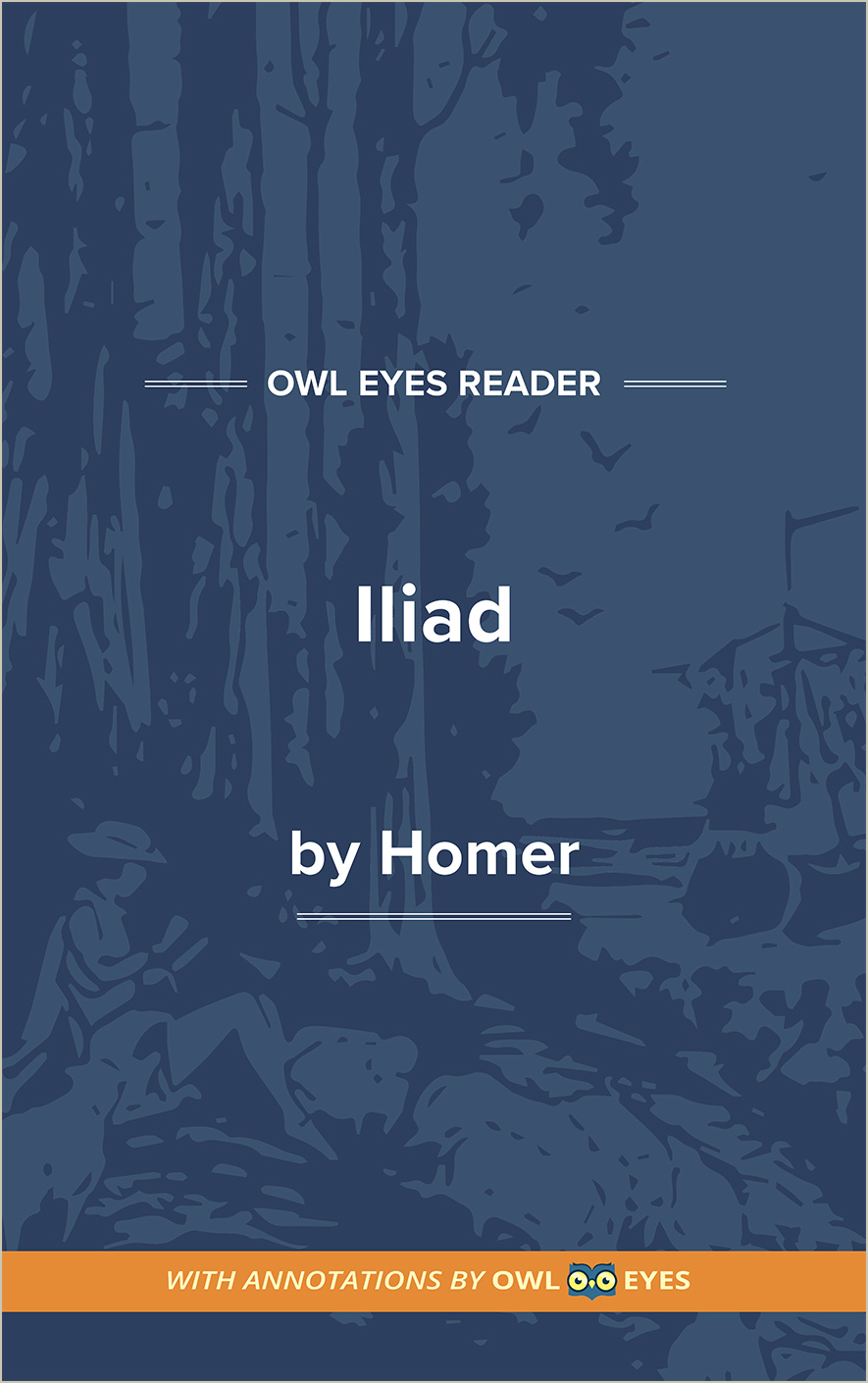Analysis Pages
Foreshadowing in Iliad
Foreshadowing Examples in Iliad:
Book I
🔒"you bore me doomed to live but for a little season..." See in text (Book I)
"the counsels of Jove..." See in text (Book I)
Book XV
🔒"Achilles will then send his comrade Patroclus into battle, and Hector will kill him in front of Ilius after he has slain many warriors, and among them my own noble son Sarpedon. Achilles will kill Hector to avenge Patroclus, and from that time I will bring it about that the Achaeans shall persistently drive the Trojans back till they fulfil the counsels of Minerva and take Ilius..." See in text (Book XV)
Book XVI
🔒"He knew not what he was asking, nor that he was suing for his own destruction..." See in text (Book XVI)
"the end of Hector also was near..." See in text (Book XVI)
Book XVIII
🔒"shall the earth cover me..." See in text (Book XVIII)
Book XIX
🔒"it is your doom to fall by the hand of a man and of a god..." See in text (Book XIX)
Book XXIV
🔒"some Achaean will hurl you (O miserable death) from our walls..." See in text (Book XXIV)

